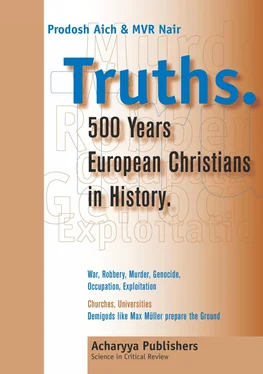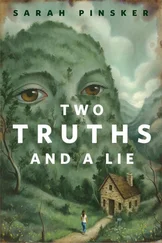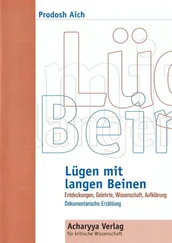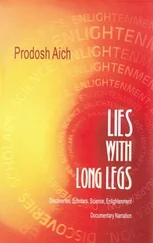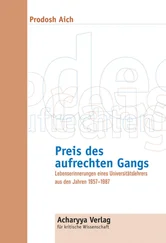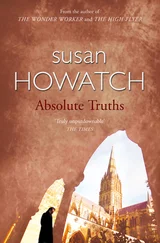“As far back as I can remember I was a martyr to headaches. No doctor could help me, no one seemed to know the cause. It was a migraine, and though I watched carefully I could not trace it to any fault of mine. The idea that it came from overwork was certainly untrue. It came and went, and if it was one day on the right side it was always the next time on the left, even though I was free from it sometimes for a week or a fortnight, or even longer. It was strange also that it seldom lasted beyond one day, and that I always felt particularly strong and well the day after I had been prostrate. For prostrate I was, and generally quite unable to do anything. I had to lie down and try to sleep. After a good sleep I was well, but when the pain had been very bad I found that sometimes the very skin of my forehead had peeled off. In this way I often lost two or three days in a week and as my work had to be done somehow, it was often done anyhow, and I was scolded and punished, really without any fault of mine own.”
All in all, the child-life of Friedrich Maximilianat Dessau has been depressive which demanded strategies to stand the adversities he faces. Max Müllercloses this chapter in his Autobiography with the words, p. 92/93:
“My narrow Dessau views became a little widened when I went to school at Leipzig; still more when I spent two years and a half at the University of Leipzig, and afterwards at Berlin. Still, during all this time I saw but little of what is called society, I only knew of people whom I loved and of people whom I disliked. There was no room as yet for indifferent people, whom one tolerates and is civil to without caring whether one sees them again or not. Of the simplest duties of society also I was completely ignorant. No one ever told me what to say and what to do or what not to say and what not to do. What I felt I said, what I thought right I did. There was, in fact, in my small native town very little that could be called society.
*****
We have put together the factors that engraved the basic personality of Friedrich Maximilianat Anhalt-Dessau mostly in the words written by Max Müller. We have not commented or analysed contradictions in them or on Friedrich Maximilian’s internalized strategies to compensate his agonies experienced in child-life, nor on repressions exercised by social facts. We feel we should not conceal our conclusions before we close this chapter, i.e. “Childhood at Dessau” as it has been chaptered by Max Müller.
As mentioned earlier, the surname Müller is extremely frequent all over Germany. Friedrich Maximiliandoes not feel comfortable to be a “Müller”. His paternal grandfather was a poor tailor. His grandfather marries a relatively rich widow of a master butcher to provide education for his son Wilhelm, the only child alive out of seven children. Well, a butcher become quite well to do in terms of money, but is not considered to be a respected occupation in Dessau or elsewhere either.
As a child, he identifies more with the family of his mother and glorifies “achievements” of his father. Thus, he represses the background of being a “Müller” and all that goes with it. We recall that Wilhelm Müllerdies early at the age of 33. He becomes a schoolteacher when he passed his 25. Shortly later, he becomes the librarian of the small Duchy Anhalt-Dessau. He does not have much time to excel as a writer and a poet. Yet we find the following lines (Autobiography, p. 47-48) in the beginning pages of the same chapter “Childhood at Dessau” .
“There is curious race of people, who, as soon as a man of any note dies, are ready to found anything for him – a monument, a picture, a school, a prize, a society – to keep alive his memory. Of course societies want presidents, members of council, committees, secretaries &c., and at last, subscriptions also. Thus it has happened that the name of founder (Gründer) has assumed particularly in Germany, a perfume by no means sweet. Those who are asked to subscribe to such testimonials know how disagreeable it is to decline to give at least their name, deeply as they feel that in giving it they are offending against the rules of historical perspective. I should not say that my father was one of the great poets of Germany, though Heine, no mean critic, declared that he placed his lyric poetry next to that of Goethe. ... His poems became popular in the true sense of the word, and there are some which the people in the street sing even now without being aware of the name of their author. Schubert’s compositions also have contributed much to the wide popularity of his Schöne Müllerin and his Winterreise, ... In the company of Mendelsohn, the philosopher and of F. Schneider, the composer, a monument of my father in the principal street of his native town, and before the school in which he had been a pupil and a teacher, could hardly seen out of place.”
Well, it is more than a “Freudian slip”, it is more than “going the extra mile”; it is more than “bigger, nicer, better”. We keep in mind; whatever we know about the childhood of Friedrich Maximilian, we know a little from the archives, from “My Autobiography” written by Max Müllerin 1898–99, a little before he dies and those two volumes written by Georgina Max Müller. Usually narrated facts as memories are not checked, if it is palatably presented. We do read carefully and check published memories. Max Müllerobviously commanded over this art of telling tales. In Germany, there is an old proverb: “Kein Meister ist vom Himmel gefallen” (No master falls from Heaven). He seems to have learnt this art right from his very childhood.
Exchange of surname is possible today. At that time at Dessau Friedrich Maximiliandoes not know that he will later become Max Müller. If we are ready to follow Max Müller, then Friedrich Maximilianhas compensated his being a “Müller” in his own way. He identifies with the family of his mother in spite of severe neglects. Max Müllerrefers back to the grandfather of his mother, though she is born ten years after her grandfather had expired. The reason is simple. Johann Bernhard Basedow(1724 –1790) was a known as an educationist. Johann Bernhard Basedow‘s descendants, the grandfather and granduncle of Friedrich Maximilianare not such known personalities.
Max Müllertells little about his own grandfather Ludwig Basedow(1774 – 1835). Naturally, he is proud that his grandfather earned a heritable title of a noble “ Von” as late as in 1833, when Friedrich Maximilianwas just ten years old. Max Müllerdoes not tell us anything about Friedrich Maximilian‘s relationship with his uncle either. He tells us only that (p. 53):
“On my mother’s side my relatives were more civilized, and they had but little social intercourse with my grandmother and her relatives. My mother’s father was von Basedow, the president, that is Prime Minister of the duchy of Anhalt-Dessau, a position in which he was succeeded by his oldest son, my uncle.”
Well. Anhalt-Dessau was one of the smallest Duchies neighbouring Prussia having a population of at most 60,000 only. His mother’s father, “von Basedow” , was not “the president, that is Prime Minister of the duchy of Anhalt-Dessau” but simply the head administrator. In the memory of Max Müllerthe head administrator of one of the smallest Duchies in Germany becomes the “Prime Minister of the duchy of Anhalt-Dessau.”
Читать дальше
